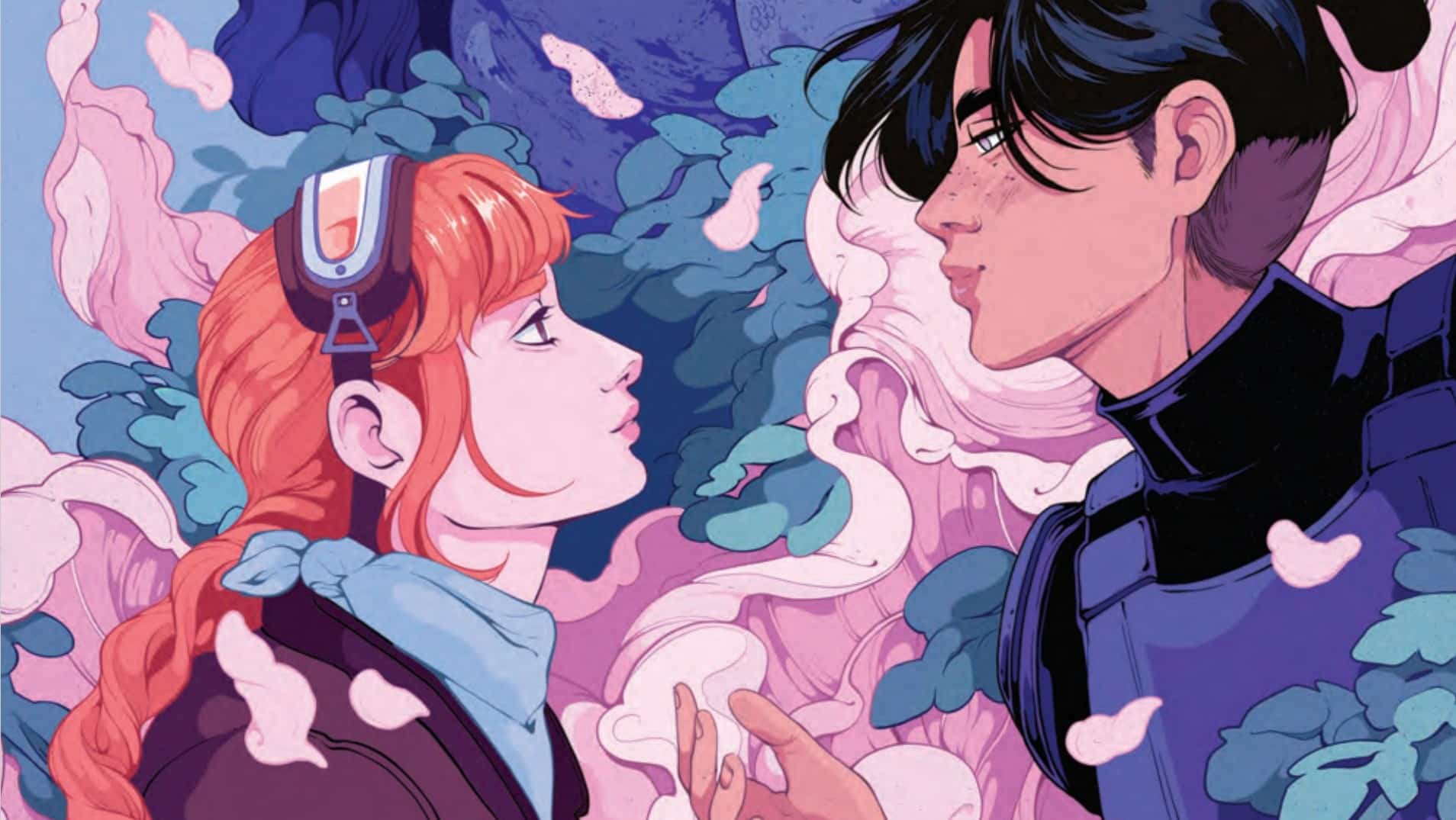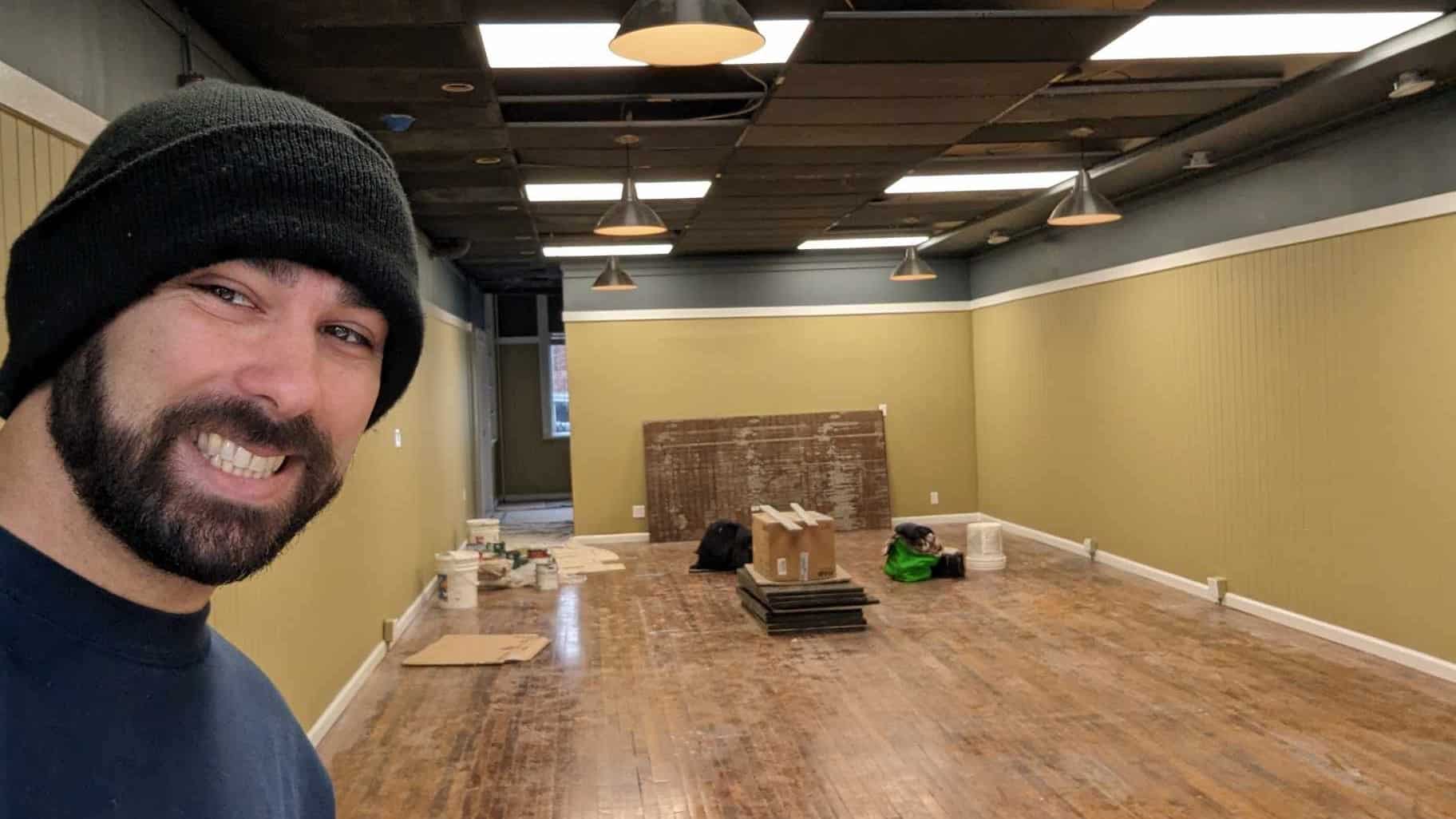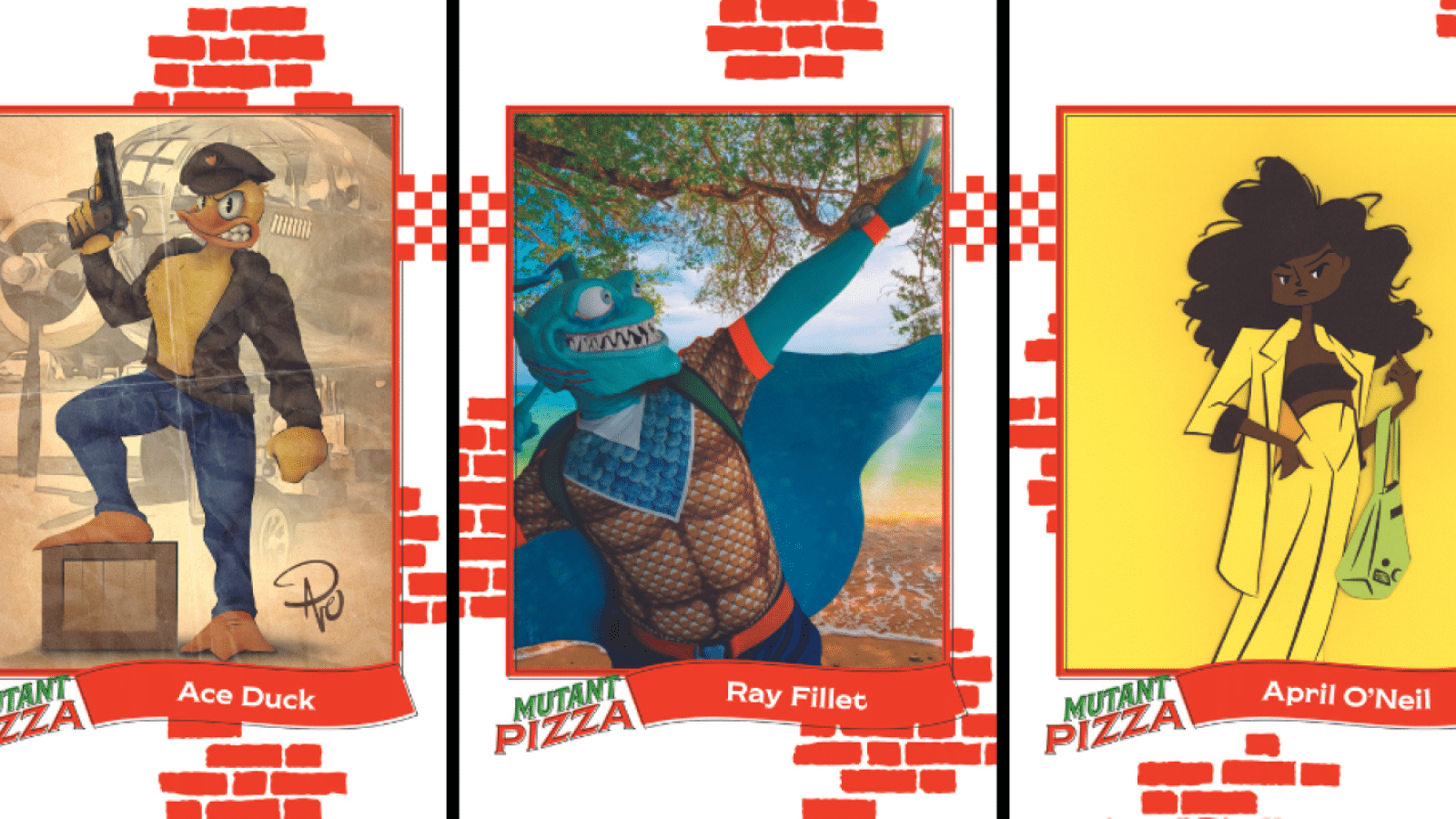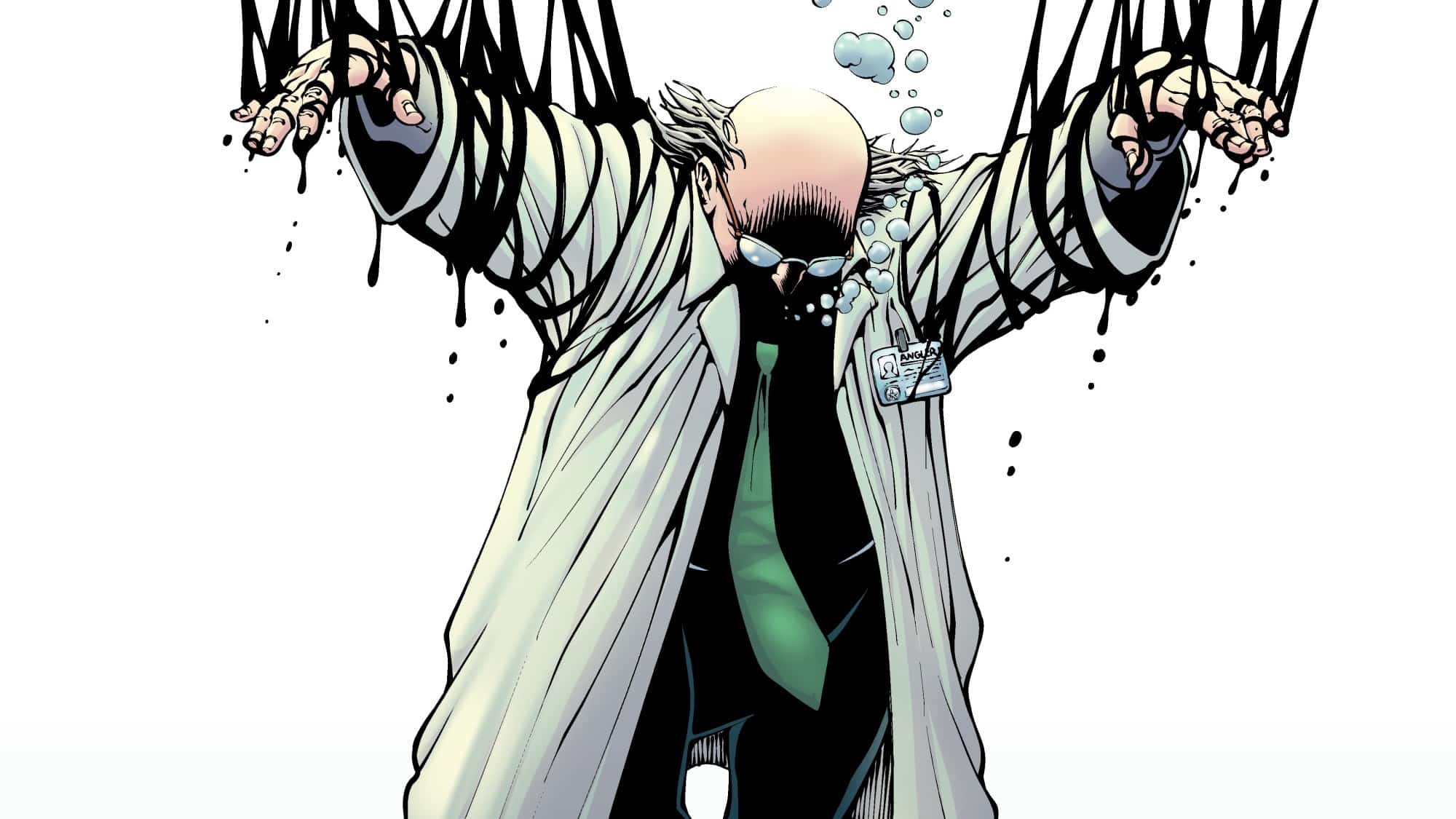I’m an ’80s baby, and as an ’80s baby, certain people were just above reproach: Bill Cosby. Michael Jordan. Prince Rogers Nelson.
Yet unlike the other two markers of my youth, my appreciation for Prince has only grown as I’ve grown. Where before I only appreciated the spectacle, I now appreciate the depth and breadth of his resounding substance: the manic musicianship, the erotic emoting, the long tail of those who’ve created careers under his influence.
And it’s here, at this corner of nostalgia and influence, where we find the new graphic novel MPLS Sound, an engaging story full of nostalgia for days and dreams left behind. Writers Joseph P. Illidge and Hannibal Tabu and artist Meredith Laxton mix ’80s fashion and names almost forgotten with themes of grief, reconciliation and perseverance that remain as pertinent as ever. MPLS Sound is a worthwhile read, a story that’s equally empathic and appreciative for the way things were and why things have to change.
What follows is a brief interview with the creative team, where we discuss Minneapolis, muses and the best Prince song ever.
(Unfamiliar with Prince? Curious as to some of the musical references? Just in the mood for some good music? Read along with this playlist, curated by yours truly.)

Jude Jones: It’s been a rough few days observing, yet again, how institutions, particularly institutions based in and around Minneapolis, do not value Black lives. While that is not at all the basis or crux of this work, I would be remiss if I didn’t ask, directly: How are you all doing, really, after all of this?
Meredith Laxton: It has been heavily weighing on my heart that MPLS Sound is hitting shelves in the wake of everything that is happening in Minneapolis right now, and it’s genuinely difficult for me to answer that question. I am terrified for the safety of my friends, I am sickeningly appalled by our rotten “justice” system, and most of all, I feel absolutely powerless. I really have no words to describe how “definitely not good” things are.
Joseph Illidge: I think your question answers itself. Our lives may be good or bad to varying degrees and through the prism of different contexts, but existentially none of us are well. Humanity. Is. Not. Well.
JJ: As a New Orleans native, I believe critics of New Orleans-based music who don’t understand the city’s unique cultural dynamics miss critical links between how that music is made, how it’s meant to be listened to, and why it sounds the way it sounds. In other words, you can’t accurately describe the sound of a city without a strong understanding of the city itself. How familiar were you with Minneapolis, the city, before writing this? How did you get familiar with the city to make sure you did the sound of the city justice?
JI: Admittedly I had zero familiarity with Minneapolis, and the research I did to be part of the MPLS Sound team opened my eyes to the city’s virtues, which are unfortunately outweighed by its anachronistic social policies, prejudices and crimes against Black families perpetrated by the supposed enemies of crime.
All of that is the background, the stage for our melodic journey of hope, music, love and perseverance.
ML: At the time, traveling wasn’t very available to me (still isn’t, of course), so most of my exploration of Minneapolis was through the internet. I spent a lot of time in Google Street View, “walking” around to get an idea of the environment, and there is quite a lot of historical photography to sift through to get an idea of what the city used to be like.
JJ: Let’s peel back the creative curtain a little bit. What was the creative process like? Who came up with the original idea? How did you all link up and divide duties to create this?
JI: The creative process was a lot of work because before I started building on the groundwork laid by Hannibal, I needed to do a lot of research into the people, dynamics and sounds of early ’80s Minneapolis. One of the things about research is that you can become lost in it, so I had to know when to achieve escape velocity in order to start the first of multiple drafts of the script. At that point, the writing and the research was happening concurrently.
MPLS Sound’s founding editor, Fabrice Sapolsky, came up with the premise of a fictional band vying to become Prince’s band. Before I started writing, Fabrice and I had a Skype call with Meredith due to my request. I wanted to meet her and get a sense of what she liked to draw, how she likes scripts, so I could write to her strengths and creative wants.
ML: The initial idea was from Fabrice Sapolsky, who recruited each of us to make his brain-child a reality. I didn’t have any influence in the scripting process, just sat back and waited for Hannibal and Joe to work their magic. Once the script was passed off to me, I just put my nose to the grindstone and started working.

JJ: The idea of family looms large here: the blood family our protagonist lost, and the found family she assembled. Found family is also a central theme of not just comics, but in an increasingly bifurcated world where people coalesce around ideology. Hannibal, how do you define the idea of family, and what about that idea did you want to show in this work? Did your family dynamics influence how you wrote the character?
Hannibal Tabu: Family is as much decision as determination. People you need can fall away, and you have to figure things out for yourself. Theresa lost both parents and clung to both her brother and her newest family member, music, with determination, and that’s something I worked to include in this project.
JJ: Your work parses comics and music. What were you listening to when you wrote this, and how did that sound influence how you wrote? Was your writing cadence different when different music was playing, or am I being presumptive — did you have anything playing at all?
HT: I listened to a lot of the fruits of this movement, from Andre Cymone’s production for Jody Watley to Jam & Lewis’ production on The Human League, plus of course Cherelle and Alexander O’Neal, the Time and so on. There was a good bit of Prince, sure, but in the same way I treated his life like a weather front that passed through the city and affected lives, I looked at the ripples from his musical influence the same way, all the way to Ready for the World and the Bangles.
JJ: While there are more avenues to publish comics and graphic novels and thus more ways for creators, specifically underrepresented creators, to get seen, the industry can still feel like a good old boys club. What would you like to see more of in modern comics/graphic novels that maybe we don’t see enough of? And what did you want to make sure we saw in MPLS Sound that maybe we don’t see anywhere else?
HT: There has been a mild influx of Black people taking on executive roles, at DC and IDW in particular. Likewise, with Infinite Frontier, we have seen more veteran Black writers stepping in. When we see Black writers getting their hands on Wolverine and Nightwing, the same way we have seen with other communities, I’ll think that’s a good start. However, we also need to see stronger sales for smaller publishers. The Penguin Random House deal should show the danger of reliance on two companies for the health of an industry. Both retailers and publishers have to figure out how to grow the next generation of legends and companies that will support them, so we can truly grow as an industry and not stick to the lessons and patterns of yesteryear. When I traveled in Europe, I saw a super robust and diverse industry full of flourishing companies. We need to have a bigger piece of a bigger pie for everybody.

JJ: Joseph, You’ve helped craft a bevy of superheroes over your career. And even though Theresa (the protagonist) isn’t superpowered, she’s clearly a heroine. What makes a main character super, even if they don’t have magical powers?
JI: Every human being has the capacity to be “super” in the very general sense of never giving up, having integrity, being dedicated to making a better world for everyone, using honed skills to inject stories into society.
Dwayne McDuffie once said something simple yet profound to me: “Human beings are capable of amazing things.”
That’s it. That’s the tweet.
JJ: There’s a point about a third of the way through this book where Theresa (rightly) fears her Afrocentric features prevent her from getting equal exposure in her own band. That’s a lived experience for many people that writers from other backgrounds may not think to include. As a Milestone alum, I’m sure you understand what it means to bring this kind of authentic representation to the forefront. How, then, do you craft an authentic voice for a Black woman protagonist? How do you honor the voice of a Black woman without being a Black woman?
JI: Going right for the jugular of the issue, Theresa grew up being told by society that her complexion made her “lesser than.” Colorism was (and likely still is) an issue in Minneapolis, and Black-led bands were not the dominant model at the time, so that had to be touched on in MPLS Sound and Theresa’s path as the bandleader for Starchild. Her strategy in creating a diverse band could never distract racists from her, a Black woman, being the tip of the spear.
As a man, I can never craft an authentic woman’s voice. What I endeavored to do with Theresa was channel Black women that I know into her. I brought my own Blackness and some of my own personality into her, as well, but Theresa has a tenacity, determination, emotional wire act between navigating and asserting oneself within unwelcoming spaces that I have seen Black women represent and live with and embody.
Also, Hannibal laid the foundation for a genuine, uncompromising love between Theresa and her brother Ellis, and there’s isn’t enough of that dynamic in comic book stories, so I wanted to help that shine through.
JJ: The arc of this work is really about her coming into her own and owning who she wants to be. There’s a hesitance in Theresa to grabbing her dream in the beginning, a hesitance that’s completely discarded by the end. Did you experience similar hesitance as you pursued your creative career? Did you find her journey, in a way, mirrored yours?
JI: Theresa’s journey is more supercompressed and with fewer compromises than my own. Her experience is one side of the Black experience in America. She is both my north star and avatar, and our methods of demanding the existence of spaces for diverse people to express themselves are different in execution, but the same in result.

JJ: Meredith, you’re working with two Black men on a story about a Black woman, deeply influenced by a world-renowned Black man. Did you do any extra work or preparation to ensure you got the details of character design right? How do you feel knowing these Black and Brown faces are ultimately yours to craft?
ML: Hannibal specifically wrote Theresa and Ellis based off of people in his life, provided pictures of them in his descriptions, and I did my best to follow his pointers while working on the character designs. Ultimately, I wanted all of the characters to feel like they were inspired by real people.
JJ: I was looking through your work and found one of your character concepts, “L’arôme,” who bears more than a passing resemblance to the Purple One. Obviously I assume you looked at a lot of Prince for inspiration, but where else did you draw inspiration from? There’s one panel where Theresa’s beaded braids reminded me of a very specific performer. What were your inspirations for character design?
ML: I had just wrapped up the early concept art for L’arôme when Fabrice reached out to me, so I already had Prince fresh on the brain. I definitely looked at a lot of other musical performers from the ’70s and ’80s for reference when designing the characters, especially for their outfits. The wardrobe was my favorite aspect of the characters because everyone has an on- and off-stage persona and each is based loosely on a different style of music. It adds to the melting-pot feel of Theresa’s band, Starchild, I think.
JJ: Do you have a favorite panel in this work, a specific scene where you just think, “I nailed it perfectly here?”
ML: I really enjoyed working on all the double-page spreads, but I LOVE the spread where Theresa is playing for Prince in person. I wanted this to be a glimpse of Theresa’s creative soul as she’s getting lost in her own music. It’s very inspired by my own feelings whenever I am taken in by the creative process.

JJ: In one word (or more if necessary!), what do you want a reader to come away from MPLS Sound feeling or thinking?
JI: Inspired.
HT: I’d like people to feel like forging your own path, finding your own definition of “done” is a good thing, and that they should have the courage to make those decisions for themselves.
ML: I hope this book inspires people to pursue their own passion, creative or otherwise. Be true to your art, and good things will come.
JJ: Final, obligatory question: favorite Prince Song? (That’s not “Erotic City,” because I called it already.)
JI: Not fair! I think “Let’s Go Crazy” because it’s such a distillation of Prince’s most admired qualities, in my opinion.
ML: It’s a tough call, but I would have to say “Raspberry Beret”! “Nothing Compares 2 U” is a close second.
HT: Tie between “Housequake” and “Thieves in the Temple.” The first in public, the second in my private moments.
MPLS Sound is available now from Humanoids.
A proud New Orleanian living in the District of Columbia, Jude Jones is a professional thinker, amateur photographer, burgeoning runner and lover of Black culture, love and life. Magneto and Cyclops (and Killmonger) were right.
Find more of Jude’s writing here.






